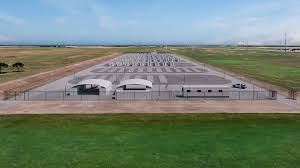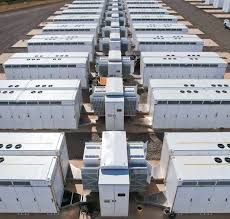
While Oklahoma Gas and Electric was the first utility in the state to use a new law allowing construction costs to be passed along to ratepayers during the building of natural gas projects, it is involved in the first use of another new energy law.
Its economic impact on ratepayers is also tied directly into the current Construction Work in Progress case that resulted in two days of hearings this past week before Corporation Commissioners.
House Bill 2756 created the High Voltage Electric Transmission Facility Act, which took effect on May 29, 2025, and is now codified at 17 O.S. §§ 850 – 851. The Act requires transmission developers to file an application to obtain a certificate of authority from the Corporation Commission for each electric transmission facility prior to commencing such facilities.
The House bill was another product of Rep. Trey Caldwell and Sen. Grant Green, two legislators who also teamed up to create SB998, the bill turned into law that allow Construction Work in Progress costs to be passed along to ratepayers during the actual construction of a utility’s natural gas project.
The Act applies to “a high-voltage transmission line or high-voltage associated transmission transmission facility with a rating of greater than three hundred (300) kilovolts.”
In this case, Black Kettle Energy Storage, LLC, applied for a permit for a half-mile long line for a large battery storage project near Enid. The firm is an operating company of Plus Power, LLC which is headquartered in Houston, Texas.

Plus Power is described as a firm that “develops, owns, and operates standalone battery energy storage systems across the United States, and likewise constructs and maintains associated high voltage electric interconnection lines.”
“Applicant recognizes its Application is the first of its kind for which the OCC is still developing procedures,” according to the filing by Black Kettle attorneys who also represent NextEra Energy efforts in Oklahoma.
“While there is some question whether the Act was intended to address short electric interconnection lines such as this one, Applicant nonetheless submits this Application out of an abundance of caution.”
The company wants OCC approval for its “approximately 0.5-mile long, 345 kilovolt (KV) above-ground electric transmission line in Woodward County, Oklahoma.” It further explained the facility will interconnect the Black Kettle battery energy storage system to Oklahoma Gas and Electric company’s “nearby substation.”
The filing further explained the facility will be entirely located on property owned by Applicant or OG&E.
What about costs that could be passed along to ratepayers? The Black Kettle filing admitted it is an “unknown.” The impact is included in the current OGE case in which the utility asked for approval of Construction Work in Progress authority to pass along constructions costs to ratepayers while projects are being constructed.
“The impacts of the 0.5-mile electric interconnection line to customers, if any, would represent a fractional portion of the impacts discussed in Case No, PUD2025-000038. Applicant estimates that the electric transmission facility would be in development and construction during 2026-2028 timeframe,” stated Black Kettle.
The company further explained it does “not plan to decommission or abandon its facilities.” Equipment that has reached the end of its useful life will be “replaced with new or newer material in order to continue operations.” Black Kettle also promised in the filing that should the facilities no longer become use, the firm will remove such including structures, towers, wires and “restore the land to its original condition.”

